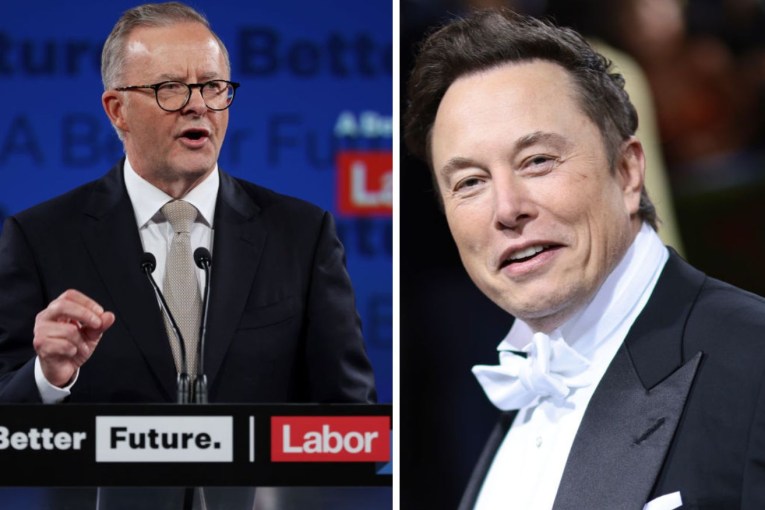QAnon super-spreader Facebook’s latest crackdown may be doomed to fail, experts warn

Social media has fuelled the spread of conspiracy theories during the coronavirus pandemic, and Facebook’s latest crackdown on QAnon is unlikely to reverse the damage, experts have warned.
On Tuesday, the Mark Zuckerberg-led firm announced a ban on content related to QAnon on Facebook and Instagram, stating that it aimed to “disrupt the ability of QAnon” to spread its messages across its platforms.
“Starting today, we will remove Facebook Pages, Groups and Instagram accounts,” Facebook said.

QAnon pushes US-centric conspiracy theories, but has gained traction globally. Photo: Facebook
The pro-Trump conspiracy theory movement has flourished for years on Facebook, and is responsible for spreading numerous false claims including that COVID-19 is a hoax.
But QAnon content on Facebook has ramped up during the pandemic, and the firm’s previous efforts to tackle it have proven lacklustre, Australian Strategic Policy Institute (ASPI) researcher Elise Thomas told The New Daily.
“I’ve lost count of the number of times Facebook has said it’s going to either commit to reduce or crack down on QAnon-related content in various forms around the world,” Ms Thomas said.
“So far it hasn’t been enormously successful, and due to the pandemic we have seen a huge explosion in QAnon-related activity on Facebook, as we have seen in a range of conspiracy theories across other platforms.”
QAnon hails from the US, but has gained traction in Australia and is responsible for the “Freedom Day” protests against Melbourne’s coronavirus lockdown measures.

QAnon has been linked to anti-lockdown protests in Melbourne. Photo: AAP
QAnon followers believe in a host of bizarre conspiracy theories.
The group’s central claim is that US President Donald Trump is on a secret mission to bring down a global pedophile ring run by Satan-worshipping elite celebrities and government insiders.
Will Facebook’s ban work?
Facebook said on Tuesday that its ‘Dangerous Organisations Operations’ has begun the work of deleting QAnon groups, pages and content across its platforms, but warned that it “will take time and will continue in the coming days and weeks”.
In August, Facebook vowed to stop promoting QAnon content, but said it would only remove QAnon groups that encouraged violence.
On Tuesday, Facebook backtracked on that stance, promising to now remove content “representing QAnon” on Facebook and Instagram even if it doesn’t encourage violence.
But Facebook’s new “sledgehammer” approach to QAnon could have a number of unintended consequences, and result in followers migrating to other online platforms, University of Tasmania lecturer and QAnon expert Kaz Ross told The New Daily.

QAnon believers are migrating from Facebook to other platforms. Photo: Facebook
QAnon influencers are already encouraging their followers to migrate to platforms including right-wing social media site Parler, Gab and encrypted app Telegram.
It will also be difficult for Facebook to rid itself of QAnon content, as followers can quickly adopt new codewords and hashtags.
“How are they going to identify what actually is Q? Which hashtags are they going to remove?” Dr Ross queried.
Are they going to ban the number 17? Because Q’s the 17th letter of the alphabet and that’s what they are all using now. Where does this begin and end?”
QAnon has “taken off” in Australia in 2020, Dr Ross said.
“It’s completely wiped the other patriot groups on Facebook and has become the dominant thing during the pandemic lockdown,” she said.
Although QAnon’s most popular conspiracy theories are US-centric, Australian conspiracy theories have also sprung up among local followers, including that Victorian Premier Daniel Andrews has been replaced by a clone.
Many of the conspiracy theories have anti-Semitic and anti-Chinese undertones, Dr Ross explained.
“For example, that everybody’s been locked down because Chinese soldiers are coming in at night at Tullamarine airport, and that 5G is secret Chinese surveillance so that everyone’s microchipped and able to be tracked, and so on and so forth,” she said.
Australians drawn in by the “cult” of QAnon are often “naive” and not internet savvy, Dr Ross said.
“I would say that the people that are being swept into it are generally pretty new to social media,” she said.
They’re not 4chan or 8chan memelords, and they may be quite naive.
“They don’t know how to download a video, they don’t know how to look for different sources. They might have just been using Facebook for personal purposes and now they’re in groups. They may not have the digital literacy to analyse stuff.”
QAnon’s online leaders are “grifters” that “often come from a self-promoting entrepreneur or multi-level marketing framework”, Dr Ross explained.
“They’re on Instagram, that’s all your wellness influencers that have drifted to the QAnon hashtags because you get a ton of likes if you post ‘down the rabbit hole content’.”
The New Daily put questions regarding QAnon to Facebook.








